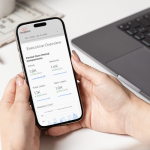
Google recently announced that it will be deprecating Universal Analytics in favor of Google Analytics 4 (GA4). While this update brings several benefits, it has also led to confusion among users. In this post, we'll debunk five of the most common misconceptions about Google Universal Analytics deprecation.
Here are 5 misconceptions about Google Analytics Universal Analytics deprecation
- GA4 is just another update to Universal Analytics
- GA4 will automatically transfer all Universal Analytics data
- My GA UA data will disappear on July 1, 2023
- My Looker Studio reports using the GA UA source will continue to work after July 2023
- Google extended the deprecation date until October 2024
Misconception: GA4 is just another update to Universal Analytics.
Fact: GA4 is a completely new analytics platform that operates on a different data model and offers several new features that Universal Analytics does not have. While GA4 is backward-compatible with Universal Analytics, it is not simply an update or an extension of the older platform.
Misconception: GA4 will automatically transfer all Universal Analytics data.
Fact: While GA4 is backward-compatible with Universal Analytics in some ways, it does not automatically transfer all data from the older platform. Users will need to set up data streams and update their tracking codes to ensure that all relevant data is transferred to GA4. They should also migrate existing UA data to a data warehouse to ensure nothing is lost in the transition.
At Calibrate Analytics, we help brands easily transfer and archive their UA historical data using our proprietary Launchpad application.
Misconception: My GA UA data will disappear on July 1, 2023.
Fact: Google has announced that the Universal Analytics service will be deprecated in July 2023, meaning it will no longer collect new data and there will be no new features or fixes to the service. However, the data collected using Universal Analytics will not immediately disappear.
According to Google, "GA UA data will be deleted on July 1, 2024, meaning that if businesses want to keep a record of their UA data, they need a plan in place to transfer it to a data warehouse before this deadline. Calibrate Analytics recommends that anyone planning to transfer and archive their UA data does so ASAP since, depending on your data retention settings, you could be losing access to certain dimensions and metrics with each day that passes".
Misconception: My Looker Studio reports using the GA UA source will continue to work after July 2023.
Fact: Looker Studio reports that rely on the GA UA data source will continue to work after July 2023, but only for historical data and only until the end of 2023. Users should update their reports to use the GA4 data source to take advantage of the new features and benefits offered by the GA4 platform.
Calibrate Analytics works with brands to develop new Looker Studio reports that use both GA UA and GA4 data. With the help of a data warehouse, you can unify these data sources and keep all valuable data and YoY comparisons in one place. To learn more, check out our blog post on merging your GA UA and GA4 data using BigQuery.
Misconception: Google extended the deprecation date until October 2024.
Fact: Google has extended the deprecation date for the enterprise version (360) of Google Analytics UA until July 1st, 2024, however the shutoff date (July, 1st 2023) has not changed for free Google Analytics UA.
We recommend that free GA UA users bookmark July 1, 2023 as the date that UA will stop collecting data, and July 1st, 2024 as the date that UA data will no longer be available in the platform.
Still have questions?
We're here to help you navigate the deadlines and details of the GA UA deprecation. From setting up GA4 to archiving historical data to creating Looker Studio visualizations, Calibrate Analytics is helping brands stay ahead of this year's Google Analytics changes.






